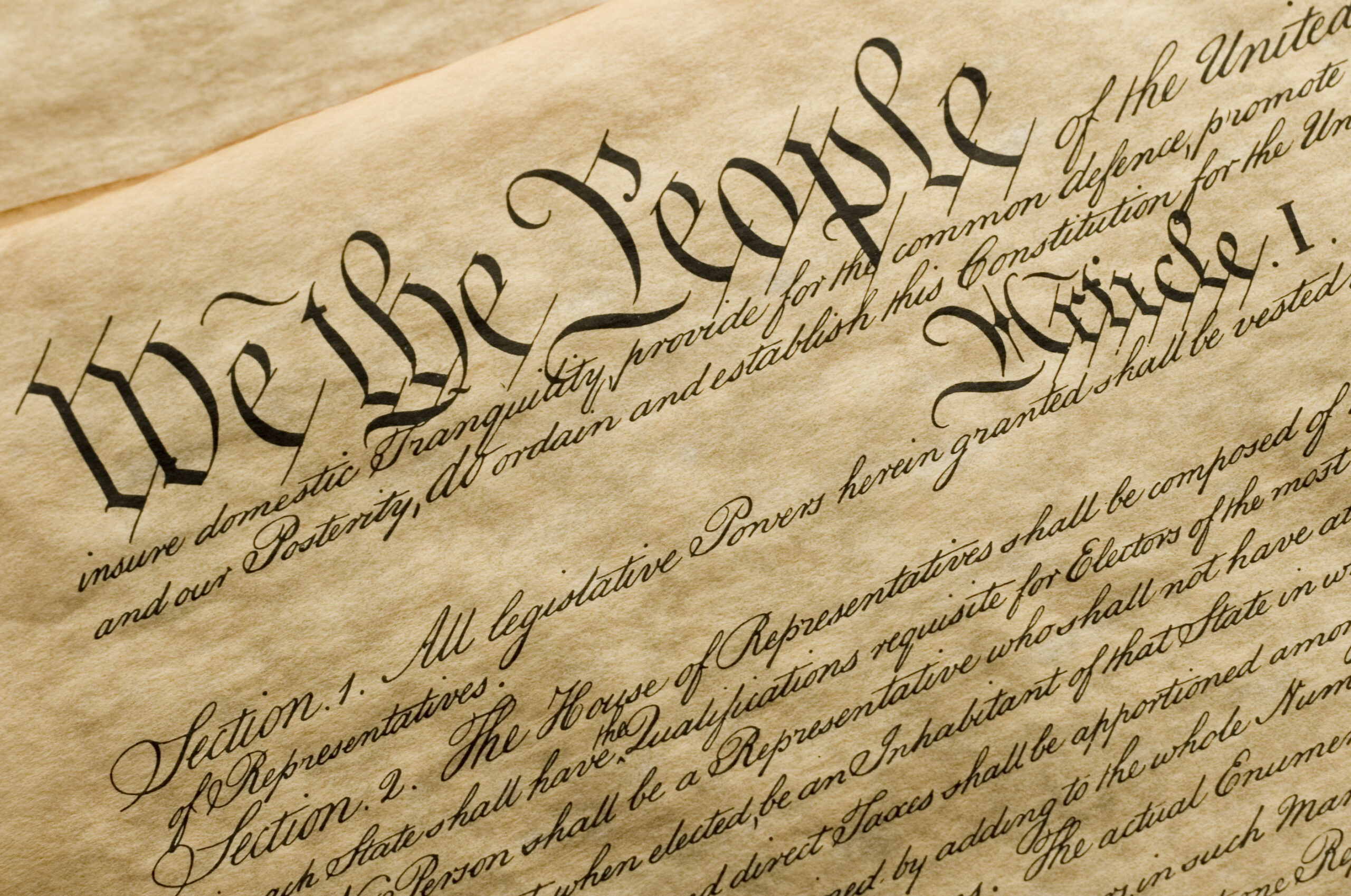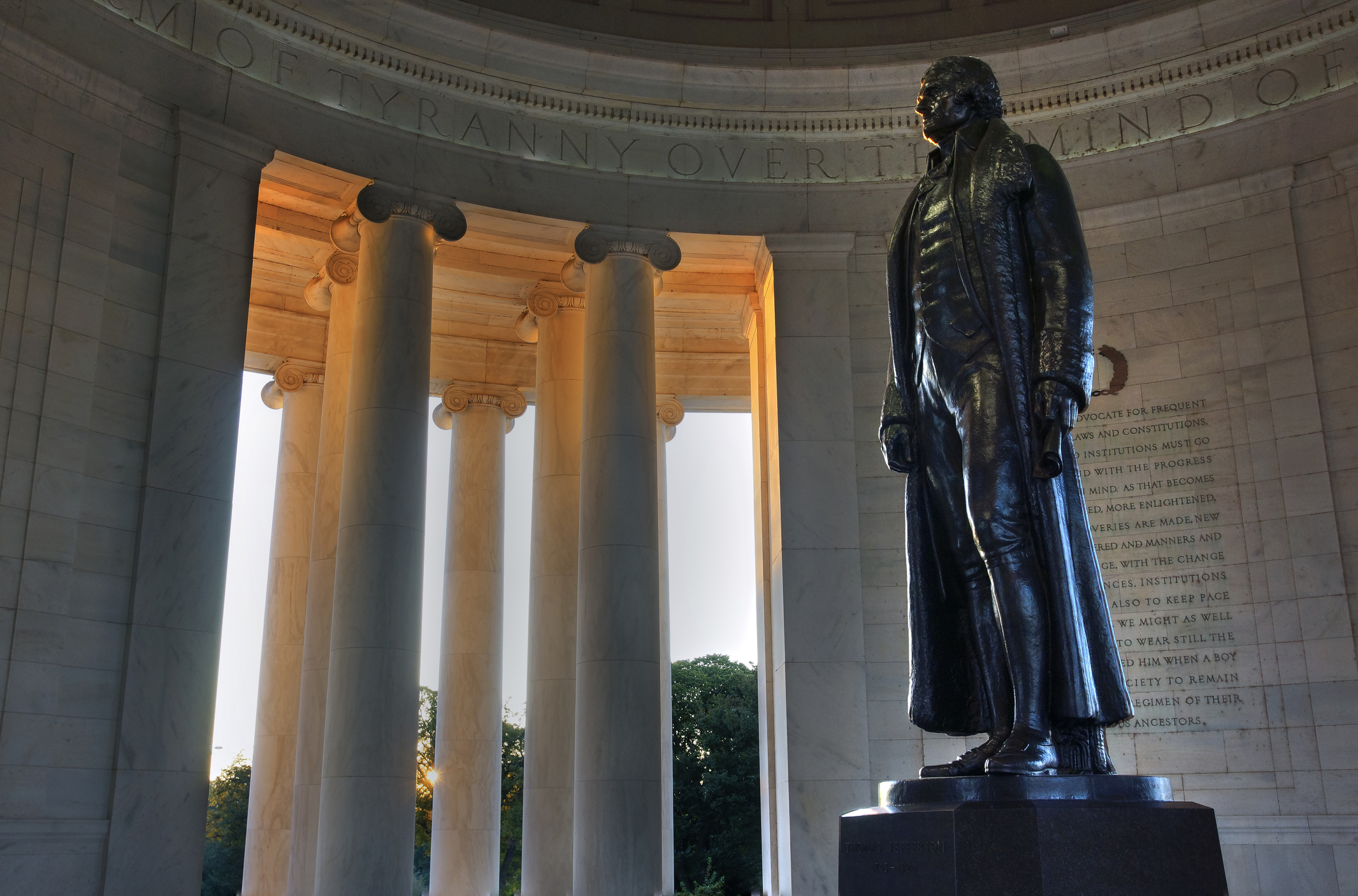Hunkering down in red states is not enough.
To Lower the National Temperature, an Immigration Freeze

How to navigate America’s post-American future.
When erudite Hillsdale faculty are echoing many of the same themes as Internet anons with frogs in their profiles, it’s a sign that a new consensus on the genuine Right may be forming. Kevin Slack’s call to arms, excerpted from his new book, shows that he is fully aware of what’s at stake in the modern Right’s political efforts. Nonetheless, while Slack does not shrink from forthrightly stating his premises on hot-button issues such as race, immigration, and identity, he does not always fully elaborate the consequences of those premises. It is useful to do so to get a better grasp of the terrain we will likely fight on.
Slack understands that America is in a civilizational crisis. More importantly, he understands that behaviors and activities which the Left portrays as dangerous radicalism on the part of today’s new Right, are actually signs of our deep desire for conciliation and hopes that we can “bind up the nation’s wounds,” as Lincoln put it in his second inaugural address. Unfortunately, this project is unlikely to find favor among a leftist establishment dedicated to tearing those wounds open and watching America bleed out on the operating table.
Many of us acknowledge, though not always explicitly and with varying degrees of clarity, that our current situation is likely not salvageable without a dramatic shock to the system such as we have not seen in the last century. But our desire to publicly seek some sort of working modus vivendi is in fact a deep desire to save the American project—not to cast it aside. That our minimum conditions for doing so seem radical to our opponents says far more about their blindness than it does about our “radicalism.” We offer them not because we are maximalists or radicals, but because anything less is an unrealistic formula for long-term social peace, a sort of “Compromise of 1850” that ultimately would kick the can down the road without solving the problem.
Slack does not shrink from sketching out two starkly different alternatives in front of us:
The first is a return to the founders’ citizenship revolution, a shared national identity against cosmopolitanism, with colorblind law, absolute free association, and America First economic policies. Most importantly, it requires a border wall and an immigration freeze so that Americans can assimilate and become one people.
We should spell out what this means clearly: Colorblind law, i.e., no affirmative action or any of the other anti-white policies that are ubiquitously enforced by our government, including DEI and its analogues. Absolute freedom of association, i.e., the freedom to “discriminate” in the sense of choosing whom we associate with in our private lives and private businesses. This means effectively nullifying most civil rights law except as involves direct services provided by the government, which necessarily must endeavor to treat all of its citizens equally. If private individuals or businesses want to discriminate, though, that must be allowed, even if many of us find their reasons for doing so distasteful.
But Slack’s call for an immigration freeze and border wall are perhaps the core of his agenda. While an immigration freeze is considered a maximalist position today, it is really the minimally acceptable condition of future Left-Right coexistence in a single, functional country.
Otherwise, it becomes increasingly likely that whites will aggressively enter the competition for ethnic spoils after being its victims for decades. The foreseeable but disastrous result will be a dramatic increase in civil discord and an increasingly Hobbesian state of racialized conflict, of the type that has torn apart so many other multi-ethnic or multi-racial societies.
A more appealing alternative resembles what America did during the previous national pause in immigration between the 1920s and 1960s. Here Slack argues not for white nationalism or ethnic separatism, nor even for a return to some sort of ethnic status quo ante, but instead simply a hiatus so that we can construct a new multi-ethnic “American” identity—centered on but inevitably not exclusive to our Western heritage, organically melding in the many practices and values from elsewhere in the world that have flowed in during the last 60 years of immigration. But the necessary precondition for this de-escalation is that it take place as a great amalgamation, not a great replacement.
Slack correctly understands that the only real alternative to the solution he proposes is “civil conflict”—of the kind already underway, though it is only sporadically recognized as such (January 6 and the BLM riots were twin poles of such a conflict).
This does not mean that a full-scale civil war is inevitable (or even likely) if we continue down our current path. But those who think that such a prospect is merely some sort of right-wing LARP fantasy are very much deluded about the current state of the country and the extent of political anger on both sides. At the very least, communal violence of the sort that now grabs headlines could become increasingly commonplace and grow to be considered an unremarkable feature of living in a future America.
Slack seemingly senses, even as he makes his cogent arguments, that our opponents do not have ears to hear them. The rulers of our current regime literally hate America’s traditional mores, folkways and peoples. They are interested in shaming whites and eradiating America’s Western traditions. They flat-out celebrate the decline of America’s white population. The minoritization of whites in America is, according to President Biden, “a source of our strength.” As long as this is the case, playing procedural games to gain social peace is unlikely to lead to a durable solution. Yet Slack’s love for the country, and ours, is sufficient that we are willing to sacrifice quite a bit in terms of our legitimate rights and interests in an attempt to re-claim at least a version of the American project.
As he closes his piece, Slack notes that our preparation for war is the way to avoid it—calling for a stronger and more fundamental alliance on the Right with “the AR-15 crowd.” This is not a call to offensive violence, but a realistic assessment of our need for literal self-defense in our homes and communities. Ultimately the Second Amendment is the right that vindicates all of our other rights. The Left understands this, which is why they are so eager to gut it as the central step of their totalitarian vision. We must show the Left that further incursions upon our rights will bring about mutually assured destruction.
This concept kept the peace in the cold war. Perhaps, as our cold civil war accelerates, it can do so again.
The American Mind presents a range of perspectives. Views are writers’ own and do not necessarily represent those of The Claremont Institute.
The American Mind is a publication of the Claremont Institute, a non-profit 501(c)(3) organization, dedicated to restoring the principles of the American Founding to their rightful, preeminent authority in our national life. Interested in supporting our work? Gifts to the Claremont Institute are tax-deductible.
It will take an appeal to the good per se to overcome a corrupt regime.
An overemphasis on abstraction and individualism is what got us into this mess.
There’s nothing unprecedented in a return to America’s foundational ideals.
Casting off an existing government is an exercise in considerable prudence and wisdom.
Conservatives must reassert the mores and moral virtues of self-government.






